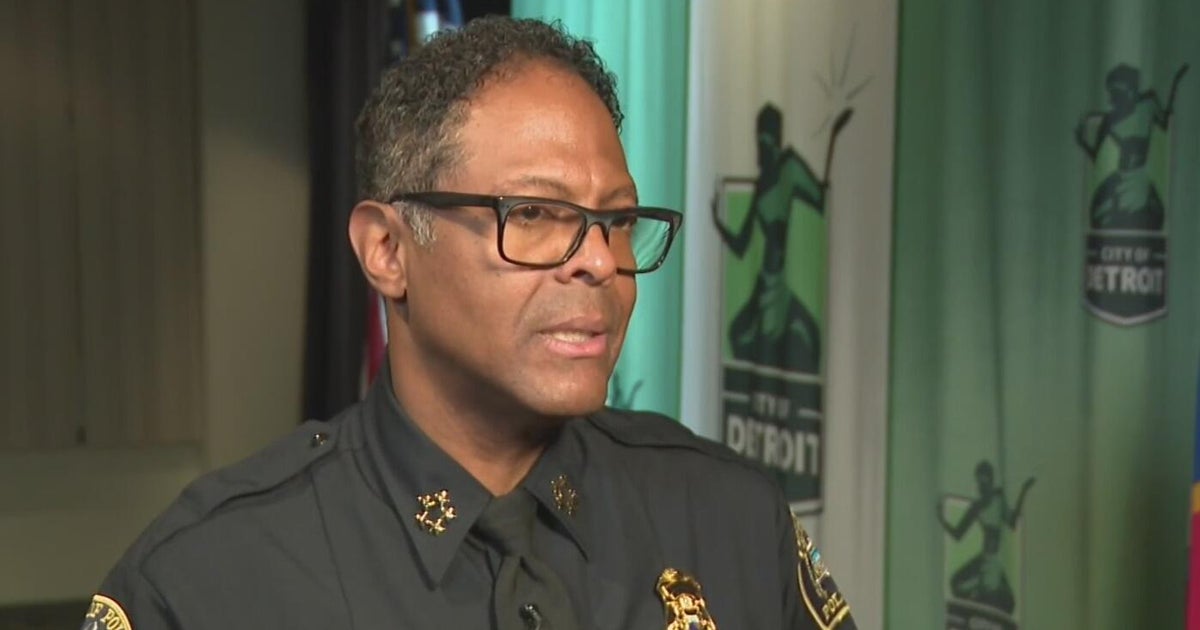Obama: New Deportation Rules For Kids "The Right Thing To Do"
WASHINGTON (CBSMiami) – The Obama Administration will stop deporting and begin granting work permits to younger undocumented immigrants who came to the U.S. as children, but have not been in trouble with the law since, a move that will affech hundreds of thousands of people nationwide, and large numbers of children in South Florida.
"Effective immedioately, the department of Homeland Security is taking steps to lift the shadow of deportation from these young people," said the President in a 10 minute statement at the Rose Garden. "Over the next few months eligible individuals who do not present a risk to the national security or public safety will be able to request temporary relief from deportation proceedings and apply for work authorization."
The policy change will impact as many as 800,000 immigrants who have lived in fear of deportation. The initiative will not require Congressional approval, and will achieve parts of the DREAM Act.
COMPLETE REMARKS BY THE PRESIDENT
That law has never been passed, but would establish a path to citizenship for children who were brought to the U.S. illegally but have since attended college or served in the military.
The President expressed frustration congress has been unable to act.
"I said time and time and time again to congress that Send me the dream act, put it on my desk, and I will sign it right away," je said. "It makes no sense to expel talented young people who, for all intents and purposes, are Americans. They've been raised as Americans. They understand themselves to be part of this country. To expel these young people who want to staff our labs or start new businesses or defend our country simply because of the actions of their parents, or because of the actions of politicians."
Under the plan, undocumented immigrants will be immune from deportation if they were brought to the United States before they turned 16 and are younger than 30. The person will have had to be in the country for at least five continuous years, have no criminal history, graduated from a U.S. high school or earned a GED, or served in the military.
The person can also apply for a work permit that will be good for two years with no limits on how many times it can be renewed.
President Obama made it clear this policy does not replace immigration law, and will not give permanent status to people who, when all is said and done, are still in the country in violation of US law.
"This is not amnesty. This is not immunity. This is not a path to citizenship. It's not a permanent fix. Thiis is a temporary stopgap measure that allows us to focus our resources wisely while giving a degree of relief and hope to talented, driven, and patriotic young people. It is the right thing to do."
In explaining his decision, the president referred to the efforts of friends, classmates, and community members where South Florida students like Daniella Pelaez faced the risk of deportation because of the actions of their parents. Paleaz graduated at the head of her class last week, but until recently had faced the risk she would be forced to leave the US because her parents brought here illegally.
Under the terms announced Friday by the President, it would appear she and thousands like her would be allowed to stay without immediate fear of being forced to leave however without a long term solution. That, said the President, is why Congress still needs to act on the Dream Act.
He said children deserve the right to plan their lives in more than two year increments.
"We are a better nation than one that expels innocent young kids." said President Obama. 'There is no reason why we can't come together and get this done. As long as I am President I will not give up on this issue, not only because it's the right thing to do for our economy, not just because it's the right thing to do for our security, but because it's the right thing to do, period."
The move comes in an election year that will swing largely on the Hispanic vote in several key swing states including Colorado, Nevada, and Florida. President Obama holds a commanding lead amongst Hispanic voters and if the policy change increases that lead, it will make Obama's re-election chances look more likely.
Obama has drawn criticism from Hispanic groups for his administration's deportation policies. A Pew Hispanic Center poll found that 60 percent of Latinos disapproved of the administration's handling of deportations.
The White House won't call the policy change the DREAM Act, but the Associated Press reported the qualifications in the new policy meet those laid out in a 2010 version of the DREAM Act that failed in the Senate.
The policy is similar to one Senator Marco Rubio has been formulating in a bill that has yet to be released.
The Obama Administration's new policy is expected to draw sharp criticism from Republicans who will claim Obama is trying to operate without Congressional approval. Mitt Romney has said he wants tighter border security before considering changes in immigration law.
Romney also opposes legal status to undocumented immigrants who attend college, but would do so for those who serve in the armed forces.
The policy change puts the Republican Party in a precarious position ahead of the 2012 elections. If they come out too vocally against the new policy; they run the risk of losing any inroads they have developed in the Hispanic community.
With Hispanics the fastest growing demographic group in the U.S., that could set Republican causes back years if they lose any support among Hispanic voters.
Instead, the party will likely attack President Obama's move as being a power grab and circumventing Congress.
"Today's announcement will be welcome news for many of these kids desperate for an answer," Senator Rubio said. "But it is a short-term answer to a long-term problem. And by once again ignoring the Constitution and going around Congress, this short-term policy will make it harder to find a balanced and responsible long term one."
There were a few testy moments at Friday's announcement, when a representative of "The Daily Caller" interrupted the President, who bluntly told him it wasn't time for questions. When he later tried to answer the heckler's question, that person tried to argue with him, prompting the clearly-angry Present to say he wasn't here to argue.
(TM and © Copyright 2012 CBS Radio Inc. and its relevant subsidiaries. CBS RADIO and EYE Logo TM and Copyright 2012 CBS Broadcasting Inc. Used under license. All Rights Reserved. This material may not be published, broadcast, rewritten, or redistributed. The Associated Press contributed to this report.)







